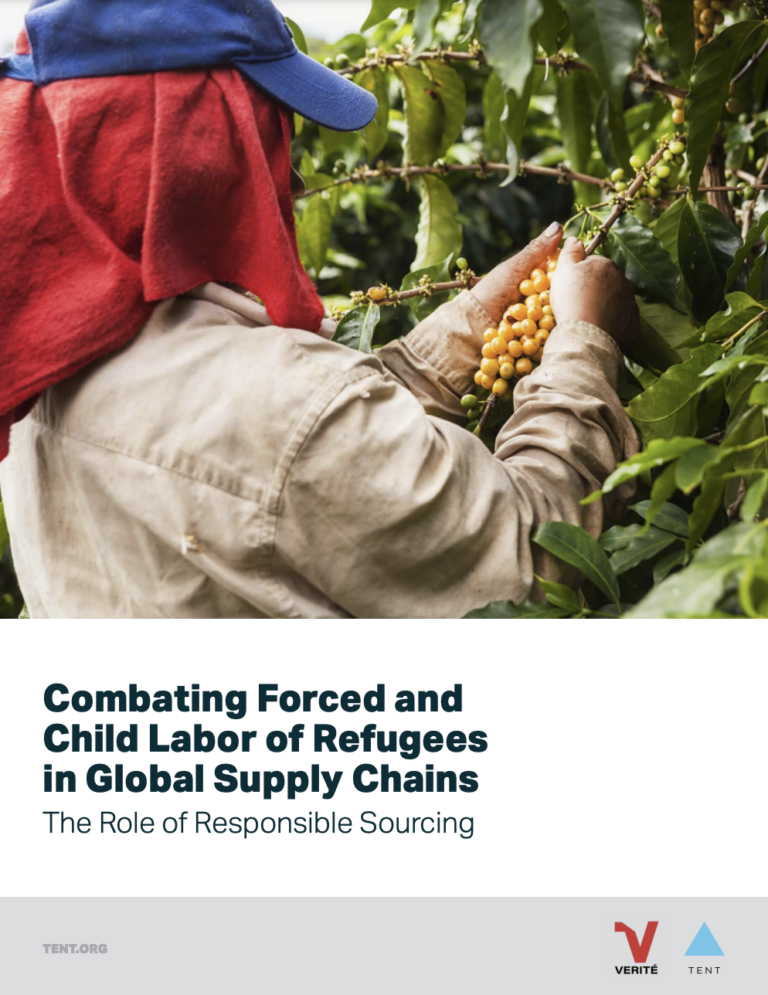With the global refugee crisis showing no signs of abating, multinational companies need to consider how their supply chain interacts with refugees, who are often more vulnerable to forced labor when they seek out work in a new country. Combating Forced Labor and Child Labor of Refugees in Global Supply Chains: The Role of Responsible Sourcing unpacks why and how companies can and should tackle the issue of forced labor by rethinking how refugees can be safely integrated into their supply chains and, in doing so, help refugees gain access to fair, decent work.
This report makes the case for why companies should proactively include refugees in their strategies to mitigate the risk of forced labor. It also lays out concrete actions companies can take — by proactively encouraging their suppliers to hire refugees and by advocating for refugees’ expanded right to work, with recommendations and resources for companies and their responsible sourcing teams.

